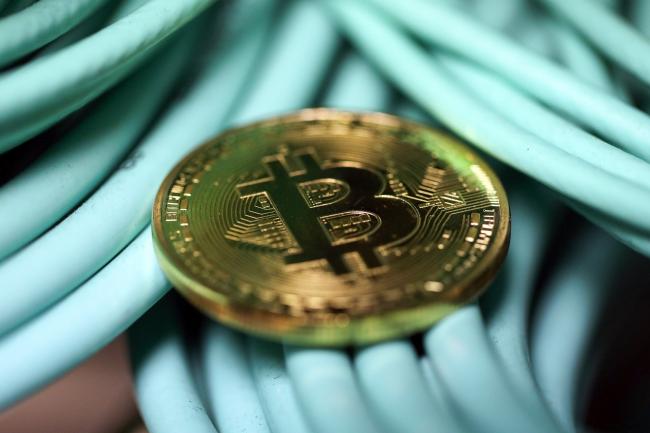(Bloomberg Gadfly) -- Saying Bitcoin is un-hackable is of small comfort to those who've lost money through cracks in its ecosystem of exchanges, intermediaries and money-raising schemes.
The latest theft in cryptoland is a reminder that the promise of security and liquidity is only that -- a promise. This isn't a systemic shock in the league of the Mt. Gox bitcoin exchange collapse, but it's a warning that transparency and trust are rare commodities in this world.
The size and scope of the attack are small by historic standards, hence why Bitcoin's price bounced back to $8,200 after sinking to about $7,800. About $31 million was stolen from Tether, a Bitcoin peer that issues U.S. dollar-backed tokens for easier trading on crypto exchanges, and sent to what the company calls an unauthorized bitcoin address. That's more manageable than the collapse of Mt. Gox -- hacked for $450 million -- or last year's $65 million theft at another exchange Bitfinex.
But the Tether raid shouldn't be dismissed.
It's one example of how quickly a cryptocurrency's glitzy promise of instant liquidity and top-flight security can be shattered. Tether is a Top-20 digital currency, which built its name on combining both cryptographic security and real-world monetary value. Every Tether is supposed to be backed "1-to-1" by a corresponding hard currency, meaning that crypto exchanges and traders can trade it as a U.S. dollar proxy, safe in the knowledge that it will always be redeemable if the need arises. The "best of both worlds," as Tether put it.
But in practice, it looks more like the worst of both worlds. Already, before the hack, Tether's legal small-print made clear that its tokens were neither money, nor stored value, nor currency. Redemption wasn't guaranteed.
Jittery banks didn't help, with Tether warning this year that its Taiwanese lenders had blocked all incoming international wires since April. The hack is drying up another pool of crypto liquidity: Several exchanges say they're suspending Tether transactions, according to news website Bitcoin.com.
There's more. One part of Tether's story yet to be fully explained is its link to Bitfinex, an exchange that was itself hacked last year. Tethers can be used on Bitfinex as a withdrawal and deposit method for crypto users, a kind of substitute for the traditional banking system.
But the two companies have other ties. They filed a lawsuit together against U.S. bank Wells Fargo (NYSE:WFC) & Co. over those aforementioned frozen international transfers, according to American Banker magazine, fueling speculation that they're linked through ownership. So Tether's wider impact could hit both general liquidity on crypto exchanges and any companies with which it has ties.
The risks of trading cryptocurrencies are well-known, as are the rewards.
This hack has done little to halt Bitcoin's speculative price bubble, and Wall Street is still watching closely. But the next big hack might not be so easy to digest -- especially with the arrival of bitcoin futures trading that will make it easier to pile on bearish bets. This is a timely warning.
This column does not necessarily reflect the opinion of Bloomberg LP and its owners.
Lionel Laurent is a Bloomberg Gadfly columnist covering finance and markets. He previously worked at Reuters and Forbes.
